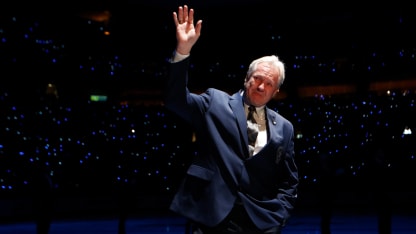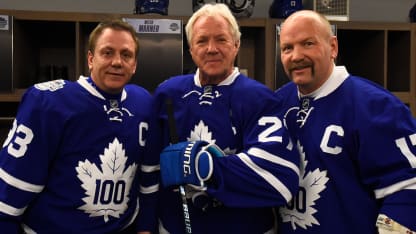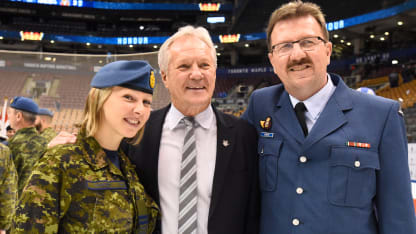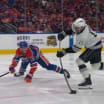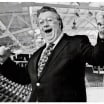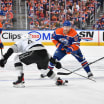The thing with melanoma is, even though it starts on the surface, at any point it can grow inwardly. And once that cancer cell has broken through, then your cancer can show up in other parts of your body.
I was one of the fortunate ones who was able to catch it in time.
That was my early brush with cancer.
Then, later in my life, as many hockey fans know, my wife Wendy was diagnosed with colon cancer at the young age of 48, 49. We didn't know much about it until then, but we found out pretty quickly that colon cancer is the No. 2 killer in terms of cancers of men and women in Canada. Yet the irony of it is, it's 90 percent preventable.
We were asked if we wanted to take part in an awareness campaign and we did. At the press conference, I went up and spoke and talked about the importance of being checked.
What I remember the most about that day, however, is when Wendy went up and spoke. She was going through chemo at the time. And in a very emotional way, she said that if she could prevent even one person from going through the chemo, the treatments, the suffering she was going through, then it was worth it.
Wendy passed away in 2001. And to this day I'll always remember her speech and her message.
All these years later, whether I am speaking at a corporate function or a small group around the table, I try to bring up the subject of colon cancer not only to get checked, but to be aware of it.
I've subsequently found out that some of the people I've talked to did get checked, were diagnosed with stage 1 or stage 2 colon cancer, and got treated in time. And, so, I continue to preach Wendy's message.
This month the NHL is featuring Hockey Fights Cancer and I've asked to be a part of it. I continue to pass on the message.
